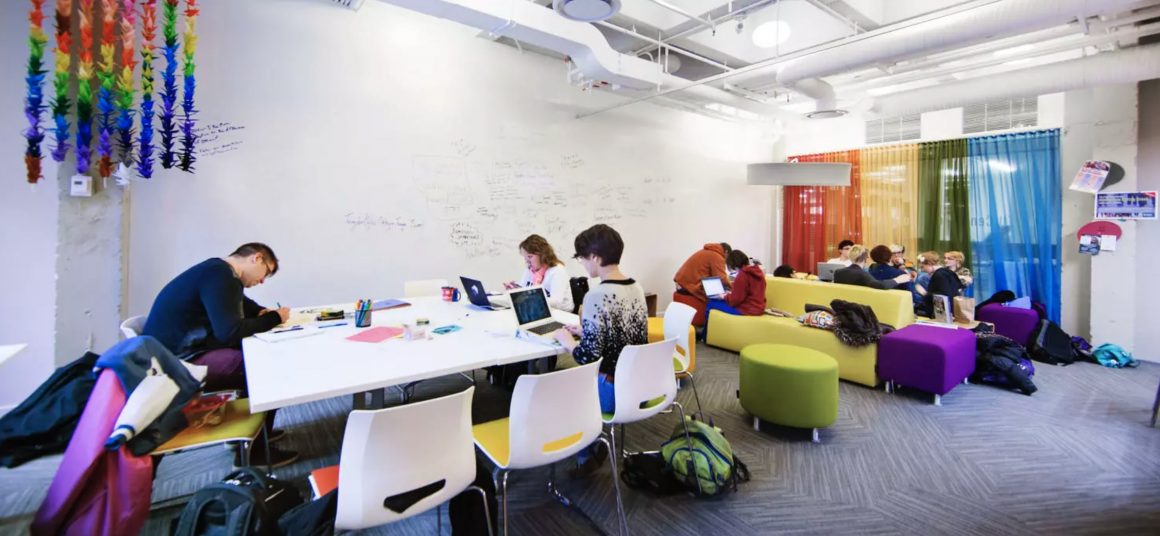
Transgender rights advocates raise alarm over proposed anti-trans policies in Alberta
By Vama Saini, October 20 2024—
Alberta Premier Danielle Smith has announced a series of proposed anti-transgender policies aimed at limiting the rights and healthcare options of transgender and non-binary youth. Among the key policies are bans on gender-affirming surgeries for minors, restrictions on puberty blockers and hormone therapy for individuals under 16 and requirements for parental consent before any name or pronoun changes in schools for students under 15. The government also seeks to prohibit transgender women from participating in women’s sports leagues.
These policies, though still awaiting formal introduction, have already ignited concern among trans advocates, educators and healthcare professionals. Many believe that such measures would severely harm the mental and physical well-being of transgender youth. Jaymie Brennan, a coordinator at the Q Centre — a 2SLGBTQ+ support and resource hub at the University of Calgary — expressed their dismay over the impact these policies could have on vulnerable communities.
“I felt sadness and disappointment for the trans and gender-diverse youth growing up in Alberta,” Brennan said. “These policies will only make it harder for them, not only by limiting access to necessary healthcare like puberty blockers but also by putting teachers in the uncomfortable position of having to report students’ personal identities, which could lead to harmful outcomes.”
According to Brennan, one of the most alarming aspects of the proposed policies is the requirement for parental consent for name and pronoun changes. They believe this could force many trans youth from unsupportive families to hide their identities or face even harsher consequences at home.
“It could create a larger homeless trans youth population and cause greater internalized shame,” Brennan noted. “In its essence, this policy is about outing students who may not be ready to share their identities, even if they come from supportive families. It violates their privacy and their right to do things on their own terms.”
Brennan highlighted the irony of Smith’s policies, noting that restricting access to critical healthcare, such as puberty blockers, defeats their entire purpose.
“If you can’t access puberty blockers until after you’ve gone through puberty, they become pointless,” Brennan explained.
Brennan also pointed to the logistical challenges in accessing certain procedures.
“Smith’s announcement about banning gender-affirming surgeries for minors shows a lack of understanding of the issue,” said Brennan. “For instance, bottom surgery for male-to-female transitions is only accessible in Quebec — there’s only one doctor in the country who performs it.”
Moreover, Brennan expressed frustration at the government’s lack of consultation with 2SLGBTQ+ organizations, including the Q Centre, in developing these policies.
“The only consultation Smith has mentioned is having a family member who is trans, which feels like a shallow justification,” they said.
Despite the bleak outlook, Brennan reassured that support for trans youth exists and that community groups, like the Q Centre and others, are standing by to help.
“There are resources out there for students — support from our peer network at the Q Centre, mental health services and organizations like Skipping Stone that provide assistance. Many teachers and community members are also strongly opposed to these policies and are advocating for trans rights,” said Brennan.
However, Brennan also acknowledged that resources might be more limited outside university settings.
“Not all public schools have the same support systems. With teachers being placed in a ‘watchdog’ role, it could be harder for students to access help confidentially, especially in schools without GSA (Gay-Straight Alliance) programs,” they explained.
As the situation unfolds, community organizations, allies and advocates remain committed to resisting these measures and providing safe spaces for those affected.
“I want people to know that there are always people fighting against these policies, and we will be here to support trans youth and their experiences,” said Brennan.
Students seeking support can visit the Q Centre, which offers peer support from Monday to Friday and can help connect individuals to additional resources.
